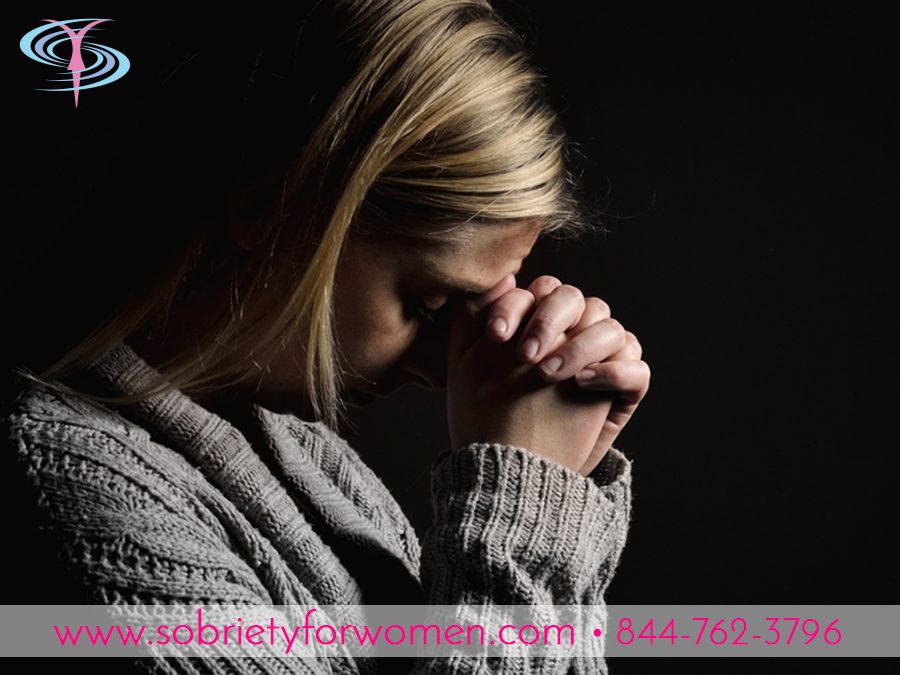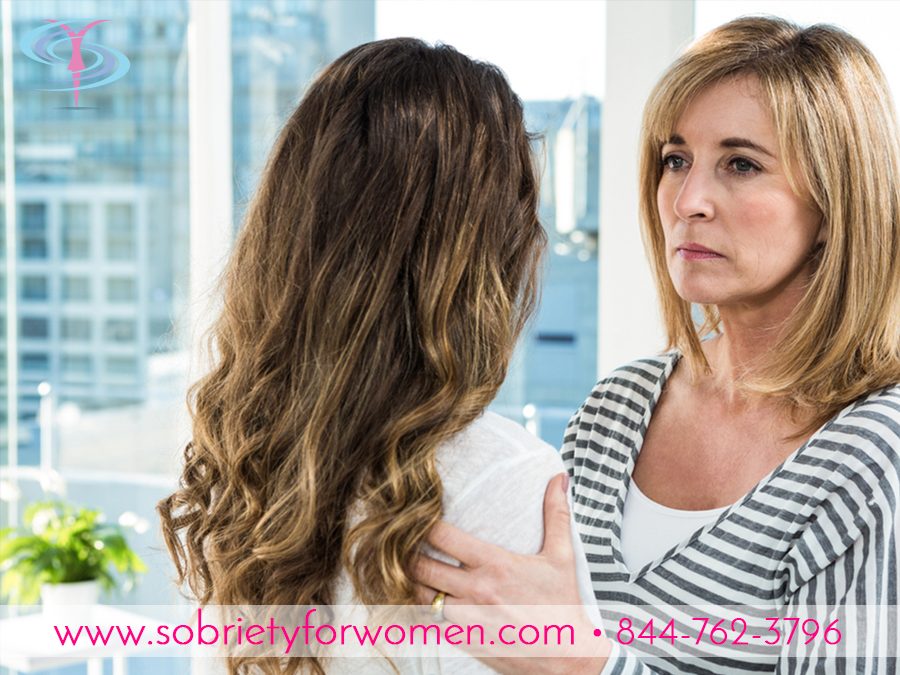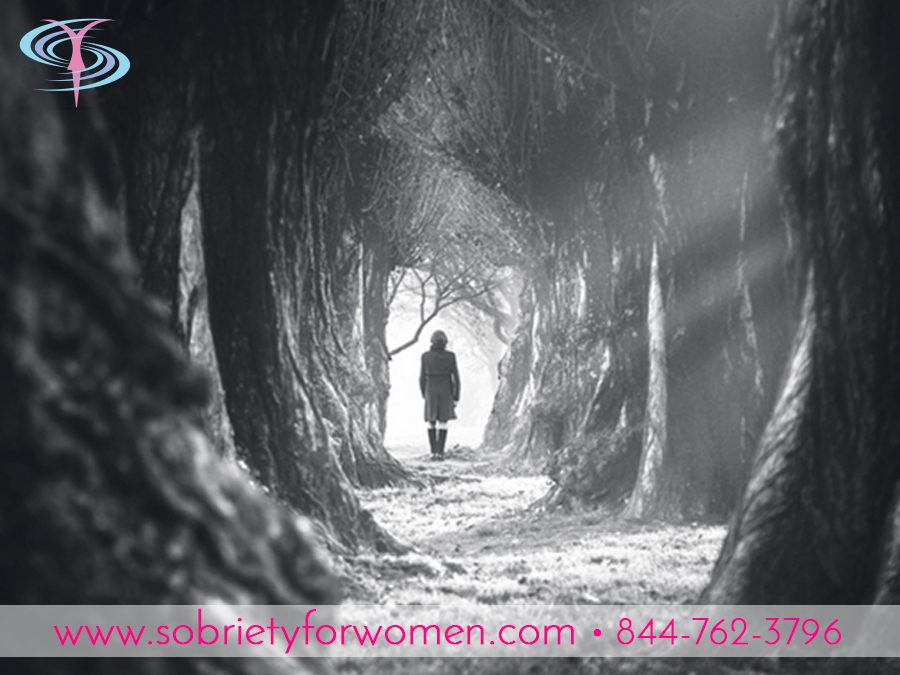
by Fiona Stockard | Dec 21, 2012 | Recovery, Addiction Treatment
Growing Up Religious
I never had any intention of growing up and becoming a drug addict. It just sort of happened. I saw things I’d been sheltered from my entire life. I did things I swore I’d never do.
I was born into a way of life where God, and the Bible, were more important than anything else. I grew up a Jehovah’s Witness with a loving family. I was raised with spiritual principals and a deep love for God. When I was around sixteen, I switched high schools. I ended up with friends who were Jehovah’s Witnesses and friends who weren’t. My family always warned me “bad associations spoil useful habits,” but I just heard another restriction being placed on my life. I started becoming resentful at my upbringing.
I never felt connected to the religion I was raised in. It was what I was supposed to do, not what I wanted to. I went through with the motions, trying to be part of a life that was so important to my family. I thought religion was the only option if I wanted God in my life. I was either a Jehovah’s Witness, or I was nothing. I chose nothing.
I felt being raised as a Jehovah’s Witness was the reason I didn’t fit in anywhere. I couldn’t celebrate Christmas. I couldn’t date the boys I wanted. I felt different than everyone else (turns out most addicts feel this way, but I didn’t know that at the time). I became angry at God.

How Dark It Is Before Dawn
Just like I was angry at God, I thought God was angry at me. I thought God was angry at me for smoking cigarettes, for drinking recreationally, for having premarital sex.
Being angry at God is a dangerous thing for an addict like me. I had this empty, and ever growing, hole in my chest. This space, as a child, was filled with God’s grace. This hole was painful, shameful, and unbearable.
The shame I experienced for dishonored my family only brought me to darker places. Soon, I was spending all day, everyday, trying to numb my feelings. I’d do anything to distract myself from the pain and anger I felt as soon as I opened my eyes each morning. I was exactly what my family never wanted me to be, a junkie. I didn’t care about anything besides getting high.
After a couple years of couch surfing, and the occasional dirty apartment, I moved back to my parent’s house. This quicker my spiral to rockbottom. I saw, everyday, just how badly I was living. Shame, guilt, and love for your family are powerful motivators. I finally confessed to my parents all of what was going on. They immediately went into “save our daughter” mode.
I was ninety pounds. All the life had left my eyes. I was a walking dead woman. It was horrible for my family to see me this way.
My Experience With a God of My Own Understanding
My family placed me in a treatment center, where my real work started. I was afraid to believe in God. I thought if I believed in God, I’d have to take responsibility for how bad of a person I was convinced I was. In treatment I was given a gift.
My therapist told me early on that I wasn’t restricted to believing only what my family did. This was the first time I’d ever heard those words. I always thought I was a Jehovah’s Witness, or nothing at all. For the first time in my life, I could choose a God of my own understanding.
It took me a few days to believe this was actually true! Soon, I got a sponsor and began working the twelve-steps of Alcoholics Anonymous. My sponsor also explained I was free to choose whatever conception of God I wanted.
I created my own God. This God was all about love and forgiveness. A lot of the concepts I used came from the religion I was raised in. However, I put my personal spin on God. I was raised with good morals and spiritual principals. Once I learned to accept my family’s way of life, I was free of all resentment towards the Jehovah’s Witness religion. In fact, I feel that being raised as a Jehovah’s Witness gave me some help while learning learning how to live God’s will. I was created by a spiritual being, but let myself get in my own way!
I’m no longer a Jehovah’s Witness, but I do have an amazing Higher Power. This Higher Power’s brought me from the darkest misery to the most beautiful happiness. I have a great relationship with my family. Today, we can talk about God and life without anyone leaving the room.
I was given the gift to have my own conception of God and my life’s been nothing but wonderful since!

by Sally Rosa | Dec 21, 2012 | 12 Steps, Addiction Treatment
Being the Mother of an Addict Isn’t Easy
I’ve been on the journey of recovery with my daughter for six years. Today she celebrates twenty months sober!
That’s almost two years. Remember, I said we’ve been on this journey for six. My daughter, who’s twenty-five, has been trying to get sober since nineteen. Even before that, it was clear something bad was going on.
Over the past twenty months, I’ve learned my daughter’s sobriety is in her own hands. Her sobriety isn’t in my hands. Her sobriety isn’t in her father’s hands. Her sobriety isn’t in her friend’s hands. That wasn’t an easy lesson to learn. It took years to accept and even longer to really feel in my heart.
I’m active in my own recovery as the parent of an addict. That means I go to Al-Anon. I go to a support group. I have my own therapist. My husband and I have a marriage counselor. My daughter, husband, and I have a family therapist.

Halfway Houses Help Addicts
I’m a firm believer in the value of halfway houses. Aside from my daughter going to treatment, going to a halfway house was the best decision she ever made.
Halfway houses are a vital part of any addict’s recovery. I’ve seen the benefit firsthand. My daughter lived in one for eight months. She didn’t always like it, in fact, she often didn’t like it. She stayed though. She stayed and learned how to get better.
Residential addiction treatment sets the stage for long-term recovery. However, it’s putting those skills learned in treatment into daily practice that ensures long-term recovery. Practicing behaviors like accountability, honesty, responsibility, and reaching out allow addicts to enter the “real world” with their heads held high. Practicing these behaviors allows addicts to meet the expectations and challenges that come with being a sober adult.
Halfway Houses Help Families Too
A child’s time in a halfway house helps their family as well. Simple as that.
The months my daughter spent in her halfway house helped me and my husband to address our co-dependency issues. The halfway house staff was invaluable in bringing this issue to our attention. I learned it’s easy to fall back into enabling behavior.
I wouldn’t have been able to work on myself, nor my husband on himself, if our daughter didn’t have the support she needed. I wouldn’t have been able to work on myself if my daughter didn’t have the structure, reinforcement, and personal guidance she received at her halfway house.
My experience of good halfway house providers is that they know how to support addicts in early recovery.
This support includes:
-Holding newly sober addicts accountable for their actions
-Helping them contribute to the house (chores, cleaning, etc.)
-Helping them maintain employment
-Introducing them to recovery communities
-Ensuring participation in twelve-step fellowships
One final benefit of halfway houses is their rent is realistic. It won’t break the addict’s bank. There aren’t any leases to sign, rent is paid week-to-week. This ensures that if someone does relapse, they can be immediately kicked out without losing a lot of money and, more importantly, keeping the rest of the residents safe. These small financial steps help addicts to budget and rebuild their financial life as well.

by A Women in Sobriety | Dec 21, 2012 | Addiction Treatment, Drug Addiction
Written By: Fiona Stockard
Who is a Chronic Relapser?
Once upon a time, I dubbed myself a chronic relapser. Maybe you’ve heard the term?
It’s someone who’s trying to get sober, but can’t stop using. It’s someone who falls into a vicious cycle of going to meetings, using, going to detox, going to meetings, using, going to detox, and finally declaring, “why even bother trying to get sober?”
Potential and the Chronic Relapser
My life wasn’t always this way.
Years ago, I was a kid with so much potential. Many months ago I was in treatment. I did my thirty days. Hell, I even quit smoking and was nominated floor president!
So, what happened? I left treatment and refused to take any suggestions. My heart wasn’t in recovery. I had reservations, stipulations, and speculations. I was nineteen. I never used a needle. I was jealous of thirty-five year olds getting sober. I was jealous they had more years of using than I did! To put it another way, I was battling my demons and not talking to anyone about it.
There were two ways my situation could have played out.

Scenario One: the Road to Happy Destiny
I could have talked to someone about how I felt. I could have gotten a real sponsor, instead of the sponsor I called only once (to cry about my latest arrest). If I was honest about my feelings, I’d have quickly learned that most people new to recovery have the exact same thoughts!
I could’ve taken suggestions, even though I didn’t want to. I could’ve gone to a halfway house and lived with people just like me. I could’ve tried prayer, whether or not I believed in it. Instead, I spent countless hours looking for proof. By doing so, I missed God (or Higher-Power,if you please) altogether.
Scenario Two: Going on to the Bitter End
I DON’T RECOMMEND THIS!!
This was the scenario I chose instead. It’s a terrible and unhappy life. Unfortunately, this disease is cunning, baffling, and powerful. So, off I went.
I teased myself at first, saying things like “I’ll call my sponsor later,” and “I don’t really need to go to that meeting. Maybe I needed the pain. Maybe I needed to get it out of my system. Sometimes we need to be beaten completely down. Later, I learned we hit bottom whenever we stop digging!
I think the most important thing I should’ve done was reach out to people. I should have been open, honest, and upfront with other women.
Honesty and the Chronic Relapser
I’m a true believer that if you’re not ready to get sober, you’re not going to get sober. There’s nothing anyone can do. There’s nothing anyone can say. There’s no place, thing, or person that’ll save you.
If you’re done though, if you’re ready to get sober, there’s hope. For the women who’s fed up with living a sh**ty life, there’s so much hope. Once I was done using, I got honest quick. From this honesty, all sorts of remarkable relationships began to spring up in my life. Even though things around me didn’t change a lot, things inside of me did. I felt like a new woman.
To this day, if I’m going through a rough patch, I know all I have to do is reach out to another woman. All I have to do is be honest. All I have to do is talk to my sponsor, or a sober-support, about it and I feel better.
by A Women in Sobriety | Dec 21, 2012 | Addiction Treatment, Sobriety For Women
One Woman’s Story of Taking Suggestions
As a scared eighteen year old girl entering treatment for alcoholism and an eating disorder, I had no idea what to expect. I had no idea what to expect from treatment. I had no idea what to expect from my life. I had no idea what to expect in so many ways!

I tried to convince myself I only needed help for “debilitating anxiety.” I had no plan to stay sober from any of my addictions. I was looking for a temporary break, a bit of peace and quiet. After staying in a hospital and slowly putting together a few days, I took my first suggestion. I came to an extended care treatment center in Florida.
Extended Care in Florida
I’d call my parents everyday, anxious to tell them how well I was doing. Of course, I was lying, I just wanted to get out! I sat in groups, saw doctors, and had individual therapy. I smoked cigarettes with my roommates and talked s**t.
I liked going to outside meetings and getting a glimpse of the real world the most. I couldn’t wait to have what everyone on the outside had. I didn’t want someone checking on me every half-hour. I didn’t want someone verifying if I could go to Starbucks. I didn’t want someone telling me I couldn’t use the phone.
Most of my peers from treatment moved out and roomed together. Some went to “three-quarter houses,” which were loosely organized and should have been called crack houses! I wanted that freedom. I wanted a car. I wanted no curfew. I debated going back to college. I wanted to join a sorority, drink in moderation, and get my life back. I wanted what I wanted when I wanted it.
Today, most of my peers from treatment aren’t sober. Two are dead. Of the fifty confused, young women I was in treatment with, only myself and one other are still sober.
Today, I thank God I got what I needed, NOT what I wanted.
What the Hell is a Halfway House Anyway?
That one other girl who’s still sober, well, her and I chose to go to halfway houses after treatment. When my treatment center suggested a halfway house, I reaction was dismal at best. I didn’t even know what a halfway house was!
One of my childhood friends lived next door to a halfway house. She always told me not to make eye contact with the residents and to go inside when they were smoking. I asked her why and she responded, “they’re all crazy people who do crack all day and have mental diseases.” So, when my treatment center suggested I go to a halfway, I wasn’t sure I wanted any part of it.
I finally learned what a halfway house really was. I was still skeptical. Bed-checks? Curfews? Been there, done that. I was pretty fed up with people running my life.
Taking Suggestions Saved My Life!
Today, I look at going to a halfway house as the best decisions I ever made. Sure, I didn’t want authority, but I was willing to try it out for a few months.
My thinking went something like this, “sure, authority sucks. What other option do I have though? If I start using again, I’ll probably die. Even if I don’t, I’ll be separated from my family and everyone else…”
Sharing a house with six women and sleeping in a twin-bed was never my idea of luxury. The feeling of belonging, hope, and happiness I experienced was better than anything else I’d ever felt. See, through living in a halfway house, I was introduced to Alcoholics Anonymous. I was introduced to young women in recovery. I was introduced to a new life.
Women with time took me to AA meetings my treatment center didn’t go to. I loved these meetings! There were women I could relate to. There were women talking about the Big Book and “recovering from a seemingly hopeless state of mind and body.” There were women talking about sponsorship and the twelve-steps.
Above all, my halfway house kept me accountable. I met my sponsor at a meeting the halfway house brought in. My halfway house manger consistently asked me where I was with my step work. When I wasn’t doing it, she pushed me to. I finished the twelve-steps. I felt, for the first time in my life, a real difference. I didn’t want to go home and try to drink in moderation. I wasn’t obsessed with getting high. I was taught how to live my life!
I started working part-time and taking college classes. I had the love and support of other girls doing the same thing. Sure, there were times I wanted to drink. If I hadn’t been in a halfway house, if I was in my own apartment, the chances are high that I would have. To put it another way, I never lacked a shoulder to lean on. Anytime I needed to vent (which, in early sobriety, was always!), there was someone there.
A Sober Woman
My experience in a halfway house allowed me to get reacquainted with life and all the responsibilities it entails.
Today, I have a full life. I’m a college graduate. I’m a sponsor. I’m still sober. These are high milestones for an addict and alcoholic!
I frequently remember my time in the halfway house with a bittersweet smile. I remember the ups and downs, the times I wanted to leave. I remember the end of my commitment, when I was actually ready to leave. I don’t have any regrets.
The women from my halfway house shaped me from a scared nineteen year old girl, to a mature and sober woman. Today, I can accept life’s hardships. Today, life is good, but only because I did the necessary work!






